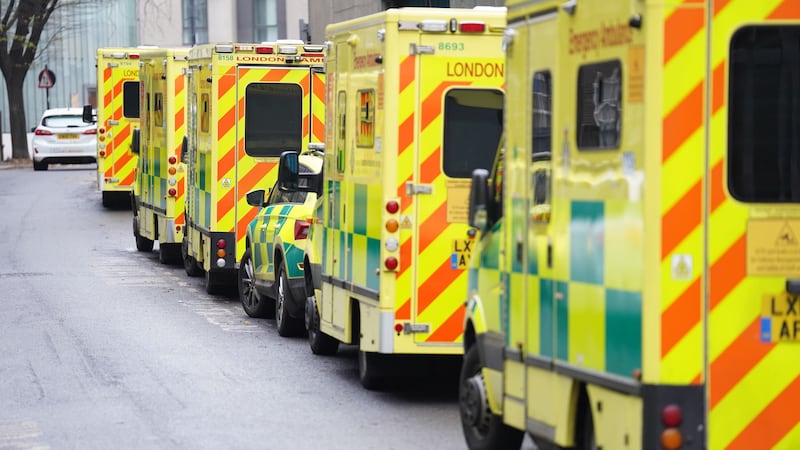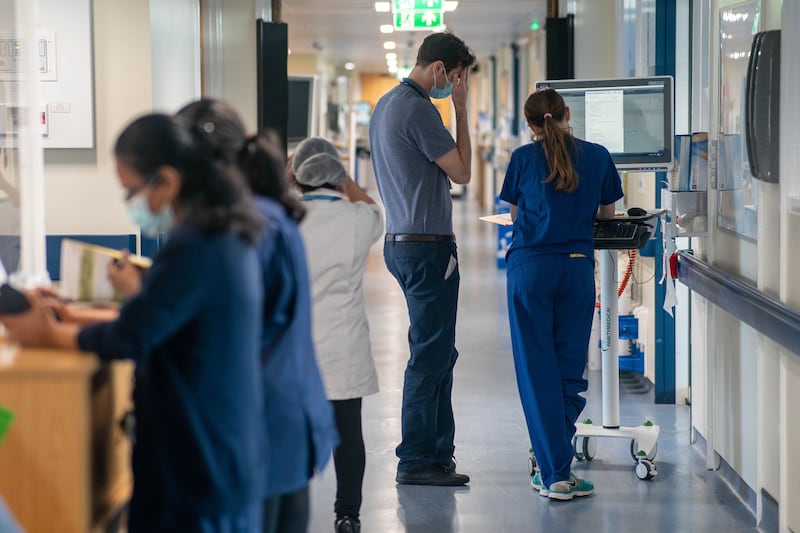Patients in dire need of urgent medical help are facing a postcode lottery of care, according to a damning new report into emergency care services in the NHS in England.
Performance in key services has fallen “far below the standard the NHS says patients should expect and receive”, despite the fact that the NHS has “more money and staff than ever before”, the authors said.
The Public Accounts Committee (PAC) called for the NHS and the Department of Health and Social Care (DHSC) to take action to improve care for patients.
It also draws on the service’s flagship long-term workforce plan, saying the plans are “unfunded and uncosted” and could lead to unsustainable financial pressures.
And MPs said they were “unconvinced” by the health service’s approach to plugging staffing shortfalls.
In its latest report on access to urgent and emergency care, the group of MPs said that patient access to quality urgent and emergency care “depends too much on where they live”.
People in some parts of the country have to wait, on average, more than three minutes longer for an ambulance to arrive when they are facing a life-threatening emergency, the committee said.
It highlighted that in 2021/22, average ambulance response times for the most serious incidents – including cardiac arrests – varied from six minutes 51 seconds for the London Ambulance Service to 10 minutes 20 seconds for the South Western Ambulance Service.
Ambulances aim to respond to the most serious life-threatening injuries and illnesses in an average time of seven minutes.
There is also wide variation in how the NHS performs in sending patients home when they no longer need hospital care.
The length of stay in the worst performing areas for discharging medically fit patients is more than double that of the best performing areas, the report highlights.
The MPs said: “Not enough (is) being done to address the systemic issues with discharges that lie within the gift of the NHS and its hospitals, and which cannot be blamed on external factors.”
They added: “The NHS has not met targets for ambulance handovers since November 2017 and for A&E waits since July 2015, with wider declines in performance across the board.
“Against this background, we asked how effective the (health) department has been in holding NHS England to account for the declining performance.”
And the MPs said the NHS “has more money and staff than ever before but has made poor use of it to improve access for patients when they are in urgent need”.
Investments in technology and infrastructure will be “critical” to improving productivity, they added, but the DHSC “does not appear to have budgeted for any such investment”.
And it said that NHS England’s existing plans “lack ambition given the scale of the issue at hand”.
Meanwhile, they said that the NHS’s long-term workforce plan includes only a commitment of an additional £2.4 billion to cover training costs for the first five years of the 15-year plan.
Dame Meg Hillier MP, chair of the committee, said: “Anyone who has had recent contact with the NHS knows it is in crisis.
“Patients suffering long waits and hard-pressed staff working in a system which is not delivering deserve better. The PAC’s role is to analyse the underlying numbers, and attempt to provide a ‘get well soon’ plan for the NHS.
“The Government and health system need to be alert to the serious doubts our report lays out around the workforce crisis, both the approach to tackling it now and the additional costs funding it in the future.”
Responding to the document, Professor Julian Redhead, NHS England’s national clinical director for urgent and emergency care, said: “While this report includes data which is more than two years old and coincided with a once-in-a-generation pandemic, it is right to note the NHS has been under increasing pressure with staff experiencing record A&E attendances, hospitals fuller than at any point in their history and with thousands of beds taken up each day, in part, due to pressures in social care.
“It is testament to the hard work of staff and results of our NHS winter plan – rolling out 800 new ambulances, 10,000 virtual ward beds and work towards 5,000 extra core beds – that waiting times for ambulances, 999 calls and in A&E have improved across the country during this financial year.
“This progress has come as the NHS has committed to delivering £12 billion of annualised savings by 2024/25 – all while dealing with more than 100,000 staff posts being vacant.”
The Department of Health and Social Care has also been approached for comment.








